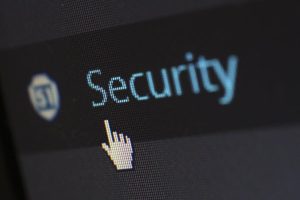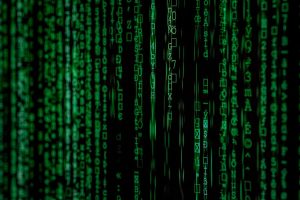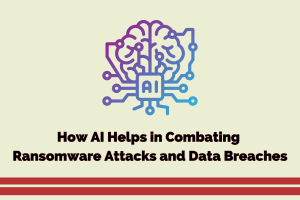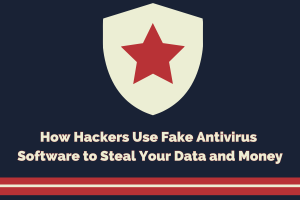Computer Viruses – What They Are And How To Protect Yourself from Their Dangers

We are now living in a digital age where we now rely more on computers. Because of that, people spend more time on computers, smartphones, and tablets to surf the internet and for their other digital needs.
It is indeed true that digital technology has made our lives easier. We get to connect with people by merely tapping our fingers. But, in this modern age, our lives are now too intertwined with computers and digital technology. While that has made living easier, it has also opened us to more threats that could potentially harm our privacy and investments. As technology continues to evolve, so do computer viruses.
Related : 10 Best CPU Temperature Monitor Tools for Windows (FREE)
What are computer viruses?
The Economic Times would define them as follows:
“A computer virus is a malicious software program loaded onto a user’s computer without the user’s knowledge and performs malicious actions.”
In simple terms, a computer virus is exactly like a biological virus. That is to say, it is something foreign that is unknowingly introduced into our computers to perform actions that may potentially harm us or hamper the computer’s performance. It is a term that was first used back in the 1980s when computers were growing in use. Since then, computer viruses have become a common problem for any kind of household or business.
How do computer viruses work?
Computer viruses are usually created by humans. Like a simple biological virus, they become hard to control or stop once they spread. They work by attaching themselves to ordinary programs on the computer. If a person opens that program without having known that a virus has attached itself to it, the virus begins to perform its malicious actions.
Again, because they function like normal viruses, computer viruses can spread all over the computer. They can insert themselves in programs and files to eventually infect them. What is worse is that they can travel from computer to computer through physical data transfer via a flash drive or a hard drive or through the internet.
Related : 10 Best CPU Temperature Monitor Tools for Windows (FREE)
The most dangerous types of viruses
Not all computer viruses are created equally. Some perform actions that aren’t necessarily dangerous while some may ultimately hamper the performance of your computer or even leak out private and sensitive data and information. With that thought in mind, here are some of the most dangerous types of computer viruses that anyone should avoid:
Boot Sector Virus
This type of computer virus is one of the most stubborn and most dangerous because they attach themselves to the computer’s master boot record. While they aren’t as prevalent as they were in the past, they are still nonetheless dangerous because removing them usually requires a full system format.
Resident Virus
This is a common type of computer virus. They work by installing themselves onto the computer and can even work even though the original source of the virus has been removed.
Direct Action Virus
As the name suggests, they require the user to perform a direct action such as executing the program that the virus has attached itself to. After that, they spread quickly by looking for other files and programs to attack and attach to. They are dangerous not because they delete files but only because they make them inaccessible.
Trojan Horse
Named after the wooden horse that eventually led to the destruction of the legendary ancient city of Troy in Homer’s Iliad, a Trojan Horse isn’t exactly a virus but is actually malware or malicious software. Like the original Trojan Horse of myth, they infect the computer by masking themselves as legitimate downloadable programs. But in truth, they are there to damage your computer and infect other files.
Overwrite Virus
An overwriting virus is one of the most dangerous of its kind because it actually overwrites the contents of certain files. What’s worse is that the only way to get rid of this virus is to delete the file itself. In effect, you will lose that file and all of the contents.
These are merely some of the most dangerous types of viruses that can infect your computer. There are plenty more of them out there, and they all serve the same purpose of maliciously assaulting your files and your data. That is the exact reason why you should avoid all and any kind of computer virus whether they be the most dangerous or the least harmful.
How to protect yourself from computer viruses?
Now that you are most likely aware of what computer viruses are and what types are most dangerous, it’s time to know how to save yourself from the harmful effects they can cause to your privacy and to your data. Here are some things you should do:
- Buy legitimate antivirus software and make sure it is always up to date – The antivirus one is a good once only if it not only scans the computer for harmful and dangerous software but will also take the necessary steps to destroy those threats. Updating the software is crucial since viruses also evolve and adapt.
- Be vigilant when it comes to unknown attachments – Malware such as the Trojan Horse usually infects the computer when the user downloads and opens an email attachment from an unknown source. While some may not necessarily infect the computer, they can nonetheless harm your data when you provide them your info.
- Keep your firewall up – Some antivirus software come with a firewall, which is what protects your computer from any kind of harmful or unknown process that may potentially harm your system. Always keep it up to make sure your computer is kept safe from any outside threats.
- Your passwords should be strong – If ever a virus does infect your computer, one of the best ways to protect your online data is to make strong passwords that are both easy to memorize but are nevertheless complex. This makes it difficult for infected third-party programs to get a hold of the data and information your passwords protect.
- Back your system up – If worst comes to worst, you should always have a backup data ready in case you need to restore your system after your computer survives a potentially fatal computer virus attack. Make sure the backup is always recent and that it is stored in an external drive or in a cloud storage service.
There are no easy and quick fixes when it comes to protecting your computer from viruses. But, similar to how you protect your body from external threats, it is always best to invest on your computer’s health and to be vigilant when it comes to the potential dangers that the internet may pose. As they say, prevention is always better than a cure.






